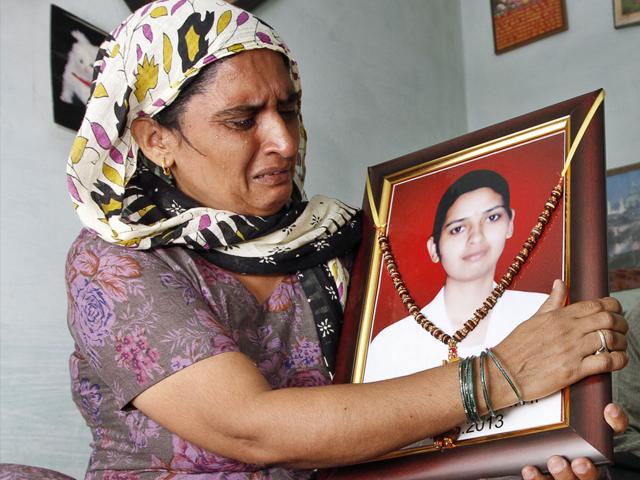Acid attack victim Preeti Rathi’s stalker has got death, but don’t celebrate yet
The Mumbai court judgement sends out the right
The New York Fashion Week is not an ordinary show. On Friday, the gala event met its match when an extraordinary woman, Reshma Quereshi, an acid attack victim, walked the ramp to promote a ban on the sale of corrosive substances.

Hours earlier and thousands of air miles away, a special women’s court in Mumbai sentenced 25-year-old Ankur Panwar to death for a fatal acid attack on 23-year-old nurse Preeti Rathi in May 2013. Panwar attacked Rathi as he was jealous of her new job with the Indian Navy and because she rejected his marriage proposal.
Read: Acid attack survivor Reshma Quereshi dazzles at New York Fashion Week
These are encouraging developments (though many have spoken out against the death penalty), but we must not forget that acid attacks continue unabated in India thanks to lax implementation of the ban on acid sale by the Centre and the states. India has the highest number of acid attacks in the world, but the poorest conviction rates.
At least 106 such attacks were reported in 2012 and the figure rose to 122 in 2013 and 349 in 2014. In 2015, there were more than 500. The number of these attacks surged from 2014 because better mechanisms to report the crime have been put in place.
Read: Stalker who killed Preeti Rathi in Mumbai acid attack gets death penalty
In 2013, the Supreme Court of India ordered the government to limit over-the-counter acid sales to people over 18. Acid can only be sold by licenced shops and the owner is required to maintain a record of the quantity sold and to whom. These details have to be sent to police within three days of the sale. All stocks have to be declared with the sub-divisional magistrate and undeclared stocks can be confiscated and a maximum of Rs 50,000 levied as fine.
But all this strong measures fail because most of the establishments that use acid are in the unorganised sector and the State doesn’t put adequate effort to implement them. Once attacked and disfigured, several challenges await victims: Most parts of the country do not have proper facilities to treat an acid burn victim and states drag their feet when it comes to paying compensation.
Read: Death for stalker in Preeti Rathi case sends out a strong signal
The first thing the Centre has to do is to ban the sale of acid in the retail market. Second, it has to get serious about punishing the perpetrators. Third, it has to ensure proper medical treatment for the survivors as they still need to fight to get medical support and ensure livelihood for the victims.
While we can hail the judgement, let’s not forget that the ban has not been imposed properly, and this lax governance is making it easy for perpetrators to plan and maim/kill their victims.





